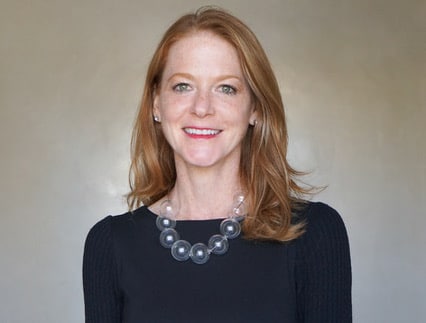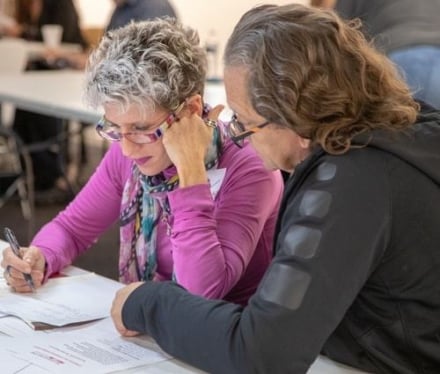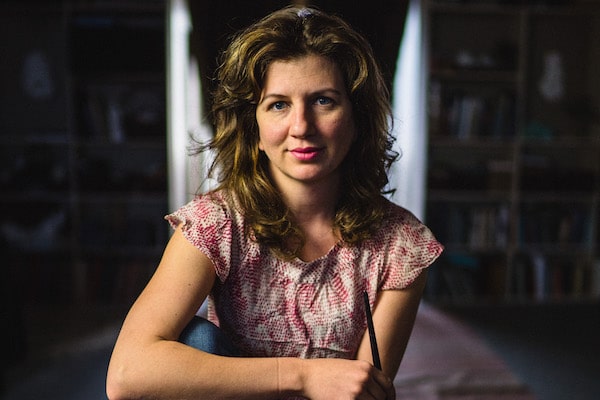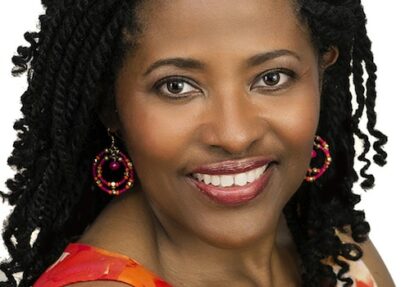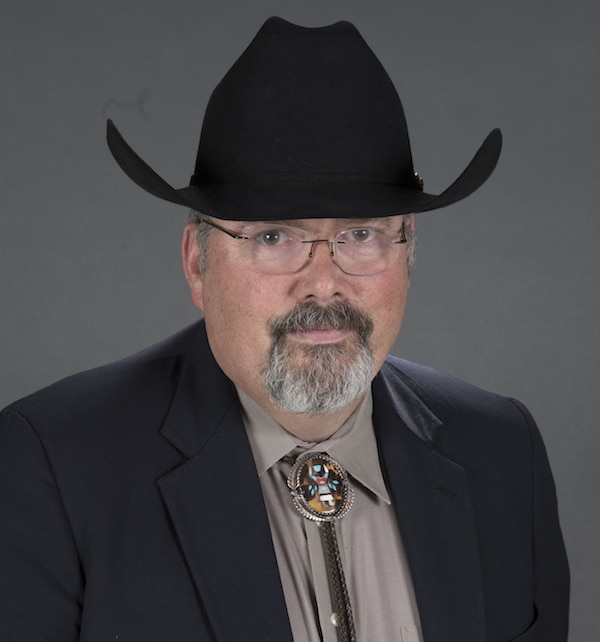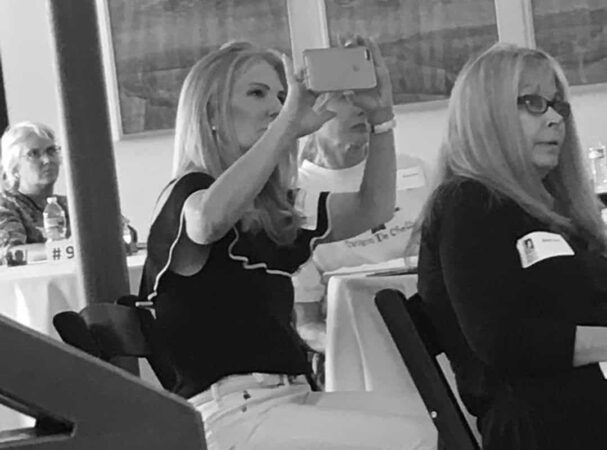Cyndi Conn is the Executive Director of Creative Santa Fe, a non-profit arts and community development organization that emphasizes innovative collaboration between diverse groups of people with varying skills, knowledge, experiences and opinions. She serves on the Advisory Boards of The Black Mountain Institute, the National Parks Arts Foundation and the N-Square Innovators Network. In 2018 she co-chaired Mayor Alan Webber’s task force on job creation in Santa Fe. Cyndi has been a curator, gallery founder, and creator of art advisory firm LAUNCHPROJECTS. She has lived in Paris, Mexico City, Austin, and New Orleans.
About Creative Santa Fe
- “Creative Santa Fe has the luxury of being a connective tissue type of organization.”
- “There were so many organizations working in such important fields and even within that their own fields, they were not working together.”
- “When we first said we were going to partner artists with issues, everyone was like, ‘What, you’re going to like…paint paintings of nuclear bombs?’ ”
- “The Nuclear Weapons Summit was our first effort at looking at this idea of the [Disruptive Futures] dialogue, bringing people together who don’t typically agree, don’t typically communicate, and using the arts to leverage—to create these bridges and anchors.”
Problem-Solving with the Arts
- “The arts can bring people together that normally would not want to sit in a room together and talk about problem-solving.”
- “And then you bring in artists and young people and new types of thinkers, you really get […] people [who] don’t know what’s not possible, and so you start to create a whole new possible.”
- “We realized if we could get people within their own sectors actually talking and working together and then bringing in new voices—[bringing] new people to the table that either don’t typically have a voice to or aren’t typically included—like artists, we really could change the way that people talk.”
Economic Impact of Artists
- “Creative Santa Fe was started in 2005 as a result of an economic study that the City of Santa Fe and McCune Foundation commissioned, looking at the arts economy. It came back that it was a 1.1 billion dollar a year economy but there was no single organization to spearhead and ensure the long-term sustainability of that economy.”
- “We need to better educate—especially our voting population and our leadership—that the arts are not just an amenity, they’re a critical function of society and a part of the fabric of social, cultural, and also economic life and livelihood for our country.”
Art: Influencing Outcomes
- “We brought the arts in [to discussions at the nuclear weapons summit] and that’s such a leveling factor, it creates empathy, it creates a whole new paradigm for how people communicate, how they listen.”
- “And that’s what we’re really seeing works, and it’s worked to a really surprising extent.”
- “It’s not just a think tank; it’s not just talk. We are working towards an outcome that our partners need to have and feel like they can only get that outcome through this methodology that we provide.
- “We’ve have had over 200 partners looking at issues—everything from affordable housing, rebirth of local news, the future of art, Native resilience and rights, sustainable technologies. And for each one of these, we have partners that have very tangible outcomes that they’d like to see as a result of these dialogues.”
Re-Embedding Art Into Everyday Life
- “In most indigenous cultures throughout the world, there was never a word for art. Because art was embedded in everyday life. At some point we started separating the arts from everything else in life. And I think that’s been to our detriment all these years. And so it’s just time to bring art back into the daily conversation, daily life, daily problem solving, to our rituals, and to our communications.”
- “If artists can look at what are their passions, what do they most care about? And then how can they bring their unique craft, the way they see the world, into helping people think in new ways about problem-solving.”
- “In our world today we really don’t have the luxury of not thinking about some of these bigger issues and how our professions, our craft, can help make the world a better place.”
- “I think it’s re-framing the business model for every company in our world to look at how does my work not only create a life and a profession for me, but how does it actually contribute to making a better world. I would argue that if you can nail that story authentically, you’re probably going to be more prosperous than you would if you just focused on covering your own nut and making sure that you were surviving day to day.”
Artists As Entrepreneurs
- “This is exactly what the Clark Hulings Foundation does: artists, by history and definition, have felt like they don’t need to know business. And I think there’s even this concept that if artists are business-savvy, they’re somehow lesser artists. And I think that so much of this is to debunk this myth and say no: if you want to be successful, every single artist is an entrepreneur.”
- “We were given a disservice [from] the era of Jackson Pollocks and Francis Bacons…who were like brilliant genius children who couldn’t handle themselves, so they had these patrons and handlers and they never had to look at a dollar. I think alot of artists look at some of these icons and think that’s the truth of ‘the artist,’ but that’s never been the legacy.”

